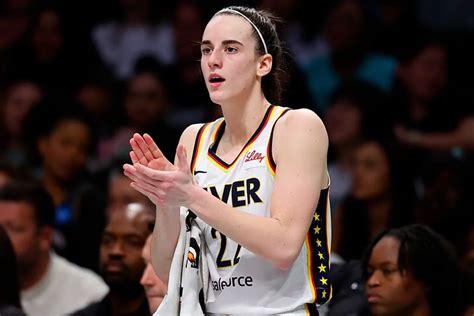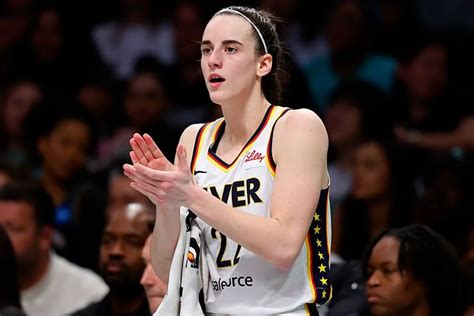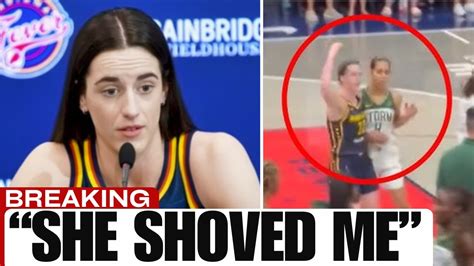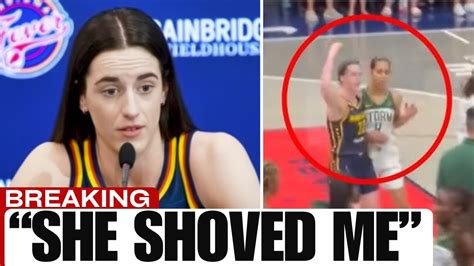
Karl-Anthony Towns’ performance in the Minnesota Timberwolves’ playoff series against the Denver Nuggets is facing intense scrutiny, with anonymous teammates reportedly questioning his effectiveness and fit within the team’s offensive and defensive schemes, particularly after the Timberwolves’ five-game series loss.
The Timberwolves’ early playoff exit has triggered a wave of introspection, with much of the focus directed towards Karl-Anthony Towns’ role and performance. According to a recent report on Yahoo Sports, anonymous members of the Timberwolves have expressed concerns about Towns’ contributions, both on and off the court, leading to questions about his long-term fit with the team.
The central concern revolves around Towns’ perceived struggles to adapt within the team’s offensive and defensive systems during the playoffs. The report highlights a sentiment among some teammates that Towns’ individual style doesn’t always mesh effectively with the collective needs of the team, especially during high-pressure playoff games. “It’s hard to fit him into what we do,” one anonymous teammate reportedly stated, encapsulating the broader issues surrounding his integration into the team’s tactical framework.
Towns, a three-time All-Star, signed a four-year, $224 million supermax extension with the Timberwolves in 2022, a deal that underscores his status as a cornerstone player. However, his playoff performance has not consistently matched this valuation, leading to internal questions about how best to leverage his talents. During the series against the Nuggets, Towns averaged 19.6 points and 9.0 rebounds per game, a noticeable dip from his regular-season averages.
These statistical shortfalls are not the only source of concern. According to the Yahoo Sports report, there is a perception that Towns sometimes prioritizes individual statistics over team success. This has led to discussions about whether Towns’ approach aligns with the Timberwolves’ broader goals. The anonymous teammate quoted in the report suggested that while Towns’ talent is undeniable, his impact on the court needs to be more consistently positive.
“The numbers sometimes matter more to him,” the anonymous teammate said. “And when that’s the case, it’s hard to win.”
The tension within the team appears to stem from the challenge of maximizing the potential of both Towns and Anthony Edwards, the team’s emerging superstar. Finding a balance where both players can thrive without detracting from each other’s effectiveness is a complex task. The report suggests that there are doubts about whether the current configuration allows both players to perform at their best simultaneously.
Another layer of complexity is Towns’ defensive performance. While his offensive capabilities are well-documented, his defensive contributions have often been a point of criticism. The report indicates that some teammates feel Towns’ defensive shortcomings are exposed in critical playoff moments. The series against the Nuggets, which featured a dominant offensive performance from reigning MVP Nikola Jokic, further highlighted these concerns.
The Timberwolves’ front office and coaching staff now face the challenge of addressing these internal concerns. They must decide whether to continue building around Towns and Edwards or explore potential roster changes that could better optimize the team’s overall performance. This decision will likely involve careful evaluation of Towns’ role within the team, potential adjustments to the team’s offensive and defensive schemes, and possibly considering trade options.
The situation is further complicated by the financial implications of Towns’ contract. Trading a player with a supermax contract is challenging, as it limits the number of teams that can realistically absorb his salary. Additionally, any potential trade would need to bring back significant value to justify parting with a player of Towns’ caliber.
The Timberwolves’ management must also consider the potential impact on team morale and chemistry. Addressing the concerns raised by Towns’ teammates requires a delicate approach to avoid creating further divisions within the locker room. Open communication, clear expectations, and a unified strategy are essential to navigate this challenging period.
The team’s coaching staff, led by head coach Chris Finch, will play a crucial role in reshaping Towns’ role and integrating him more effectively into the team’s system. This may involve adjustments to offensive sets, defensive assignments, and overall game strategy. The coaching staff must also work to foster a culture of accountability and teamwork, where every player is committed to prioritizing team success over individual accolades.
As the Timberwolves look ahead to the offseason, the future of Karl-Anthony Towns with the team remains uncertain. The decisions made by the front office and coaching staff in the coming months will have a significant impact on the team’s long-term trajectory. Whether they choose to double down on building around Towns and Edwards or explore alternative options, the Timberwolves face a critical juncture in their quest to become a true championship contender.
The Yahoo Sports report underscores the complexities and challenges of building a successful NBA team. It highlights the importance of not only talent but also cohesion, chemistry, and a shared commitment to team goals. As the Timberwolves navigate this challenging period, their ability to address these issues will ultimately determine their future success.
The Timberwolves acquired Towns as the No. 1 overall pick in the 2015 NBA draft, and for years, he represented the hope of the franchise. His pairing with Edwards was supposed to usher in a new era. But as the anonymous comments suggest, something isn’t quite clicking, especially when the stakes are highest.
The stakes are indeed high for the Timberwolves, who have not advanced past the first round of the playoffs since 2004, when Kevin Garnett led them to the Western Conference Finals. The pressure to break this streak and compete for a championship is mounting, and the team’s leadership knows that they need to find the right formula to achieve their goals.
The concerns about Towns come amid a league-wide trend of teams re-evaluating their rosters after disappointing playoff performances. The NBA is a results-oriented business, and teams are constantly looking for ways to improve their chances of winning. In some cases, this means making difficult decisions about players who are underperforming or not fitting into the team’s long-term plans.
For Towns, the challenge is to prove that he can be a key contributor to a winning team. He needs to demonstrate a willingness to adapt his game, prioritize team success, and improve his defensive performance. If he can do that, he can silence his critics and solidify his place as a cornerstone player for the Timberwolves. If not, his future with the team may be in doubt.
The Timberwolves’ offseason will be closely watched by fans and analysts alike. The decisions they make in the coming months will shape the team’s future and determine whether they can finally break through and become a true contender in the Western Conference.
Expanded Context and In-Depth Analysis
The current situation with Karl-Anthony Towns and the Minnesota Timberwolves extends beyond a simple performance dip in the playoffs. It touches on fundamental questions about team building, player roles, and the balance between individual talent and collective success. To fully understand the gravity of the situation, it’s essential to delve deeper into the underlying factors contributing to the reported tensions.
The Supermax Conundrum:
Towns’ four-year, $224 million supermax contract is a significant factor influencing the current scrutiny. Supermax contracts are reserved for players deemed to be among the league’s elite, and they come with immense financial implications for the team. When a player on a supermax contract doesn’t consistently perform at an elite level, or if their performance doesn’t translate into team success, it naturally raises questions about the value provided.
The Timberwolves committed a significant portion of their salary cap to Towns, expecting him to be a central figure in their championship aspirations. However, his playoff performances have often fallen short of expectations, leading to a mismatch between his compensation and his on-court impact. This disparity creates pressure on both the player and the organization, as the team needs to maximize the return on their investment, and the player needs to justify his high salary.
Anthony Edwards’ Ascendancy:
The emergence of Anthony Edwards as a bona fide superstar has also complicated Towns’ role within the team. Edwards’ explosive scoring ability, athleticism, and charisma have made him the focal point of the Timberwolves’ offense. While having two high-caliber offensive players should theoretically be an advantage, it also presents a challenge in terms of balancing their roles and ensuring that both players can thrive without impeding each other.
The report suggests that there are doubts about whether the current configuration allows both Towns and Edwards to reach their full potential simultaneously. This raises questions about whether the team needs to make adjustments to its offensive system or consider potential roster changes to better optimize the fit between the two players. Finding the right balance between Edwards’ dynamism and Towns’ skillset is crucial for the Timberwolves’ long-term success.
Defensive Liabilities:
Towns’ defensive shortcomings have long been a point of criticism, and they were particularly exposed during the playoff series against the Denver Nuggets. Nikola Jokic, the Nuggets’ dominant center and reigning MVP, consistently exploited Towns’ defensive weaknesses, showcasing the limitations of his defensive capabilities.
In today’s NBA, where defensive versatility and agility are highly valued, Towns’ lack of defensive prowess can be a significant liability, especially in crucial playoff moments. Teams often target him in pick-and-roll situations, forcing him to defend in space, where he struggles to contain quicker guards and athletic forwards.
Addressing Towns’ defensive weaknesses is crucial for the Timberwolves to improve their overall team defense and become a true championship contender. This may involve targeted coaching, adjustments to defensive schemes, or potentially bringing in defensive-minded players to complement Towns’ skillset.
Team Chemistry and Leadership:
The anonymous comments from Towns’ teammates raise concerns about team chemistry and leadership. The report suggests that there is a perception that Towns sometimes prioritizes individual statistics over team success, which can create friction within the locker room.
In any successful NBA team, players must be willing to sacrifice individual accolades for the greater good of the team. A shared commitment to team goals, a willingness to play unselfishly, and strong leadership are essential ingredients for creating a winning culture.
If Towns’ teammates feel that he is not fully committed to these principles, it can erode trust and create divisions within the team. Addressing these concerns requires open communication, clear expectations, and a concerted effort to foster a culture of accountability and teamwork.
Potential Solutions and Trade Scenarios:
The Timberwolves’ front office faces a challenging decision about the future of Karl-Anthony Towns. They must weigh the potential benefits of continuing to build around him against the potential advantages of exploring trade options.
If the Timberwolves decide to keep Towns, they need to find ways to maximize his strengths and mitigate his weaknesses. This may involve adjusting the team’s offensive and defensive schemes, bringing in players who complement his skillset, and working with him to improve his defensive performance.
Alternatively, the Timberwolves could explore trade options for Towns. Trading a player with a supermax contract is challenging, but it is not impossible. Potential trade partners would likely be teams that are willing to take on Towns’ salary in exchange for his offensive firepower and potential upside.
Some potential trade scenarios could involve teams that are looking for a scoring big man to pair with a young point guard or a team that is willing to take a risk on Towns in hopes of revitalizing their offense. However, any potential trade would need to bring back significant value to justify parting with a player of Towns’ caliber.
The Long-Term Impact:
The decisions made by the Timberwolves’ front office in the coming months will have a significant impact on the team’s long-term trajectory. Whether they choose to double down on building around Towns and Edwards or explore alternative options, the Timberwolves face a critical juncture in their quest to become a true championship contender.
The team’s ability to address the concerns raised by Towns’ teammates, improve his defensive performance, and find the right balance between individual talent and collective success will ultimately determine their future. The Timberwolves’ success depends on their ability to create a cohesive, high-performing team that is capable of competing with the best in the NBA.
Historical Context
To fully appreciate the gravity of the current situation, it’s important to consider the historical context of the Timberwolves’ franchise. The team has struggled to achieve sustained success throughout its history, with only a few brief periods of contention.
The Timberwolves’ most successful era came in the early 2000s, when Kevin Garnett led the team to the Western Conference Finals in 2004. However, that run was short-lived, and the team quickly fell back into mediocrity.
Since then, the Timberwolves have struggled to find a consistent identity and build a winning culture. They have cycled through numerous coaches and players, but they have been unable to replicate the success of the Garnett era.
The arrival of Karl-Anthony Towns in 2015 was supposed to usher in a new era of success for the Timberwolves. He was seen as a franchise cornerstone who could lead the team to the playoffs and beyond. However, despite his individual talent, the Timberwolves have not been able to consistently contend for a championship.
The team’s struggles have been attributed to a variety of factors, including inconsistent coaching, poor roster construction, and a lack of defensive identity. The current situation with Towns underscores the challenges of building a successful NBA team and the importance of finding the right mix of talent, chemistry, and leadership.
The Road Ahead
The road ahead for the Timberwolves is filled with uncertainty. The team’s front office must make difficult decisions about the future of Karl-Anthony Towns and the direction of the franchise.
The decisions they make in the coming months will have a significant impact on the team’s long-term trajectory. Whether they choose to double down on building around Towns and Edwards or explore alternative options, the Timberwolves face a critical juncture in their quest to become a true championship contender.
The team’s ability to address the concerns raised by Towns’ teammates, improve his defensive performance, and find the right balance between individual talent and collective success will ultimately determine their future. The Timberwolves’ success depends on their ability to create a cohesive, high-performing team that is capable of competing with the best in the NBA.
Ultimately, the Timberwolves’ situation serves as a case study in the complexities of team building in the NBA. It highlights the importance of not only talent but also cohesion, chemistry, and a shared commitment to team goals. As the Timberwolves navigate this challenging period, their ability to address these issues will ultimately determine their future success.
FAQ Section:
1. What is the main issue with Karl-Anthony Towns, according to his teammates?
According to anonymous teammates quoted in a Yahoo Sports report, the primary concerns revolve around Towns’ fit within the Timberwolves’ offensive and defensive schemes, particularly during the playoffs. There’s a perception that he sometimes prioritizes individual stats over team success and that his defensive contributions are lacking.
2. How has Karl-Anthony Towns performed in the playoffs compared to his regular season averages?
In the recent playoff series against the Denver Nuggets, Towns averaged 19.6 points and 9.0 rebounds per game. This is a noticeable decrease from his regular-season averages, indicating a potential struggle to maintain his usual level of performance during high-pressure games.
3. What is the financial implication of trading Karl-Anthony Towns?
Towns signed a four-year, $224 million supermax extension, making him a very expensive player to trade. His salary limits the number of teams that can realistically absorb his contract, and any potential trade would need to bring back significant value to justify parting with a player of his caliber.
4. What role does Anthony Edwards play in the concerns surrounding Towns?
The emergence of Anthony Edwards as a superstar has created a challenge in balancing the roles of both players. There are questions about whether the current configuration allows both Towns and Edwards to thrive simultaneously, leading to discussions about potential adjustments to the team’s offensive system.
5. What are the potential solutions for the Timberwolves to address these concerns?
The Timberwolves have several options, including adjusting the team’s offensive and defensive schemes to better integrate Towns, working with him to improve his defensive performance, or exploring potential trade options. The front office’s decision will significantly impact the team’s long-term trajectory.









